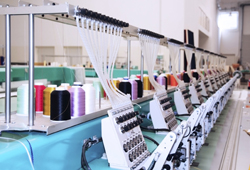Environment friendly materials and manufacturing
The Lund Declaration of 2009 established the need for aligned European and national interests to identify and respond to the so-called Grand Challenges of our time that transcend thematic areas. The Declaration called on the European Research Area (ERA) to turn these challenges into sustainable solutions in every field to meet the overarching challenge of turning Europe into an eco-efficient economy. Shortly thereafter, the European Commission adopted the Europe 2020 Strategy (EU 2020 Strategy) with the primary goal of stimulating smart, sustainable and inclusive growth. Economical development is largely driven by development of new materials and manufacturing processes. As such, scientists initiated the 'Materials & manufacturing of the future' (M-Future2011) project to further the objectives of the Lund Declaration and the EU 2020 Strategy. EU funding was used to organise two conferences geared toward creating a smarter, greener and more competitive European industry through successful global cooperation. The first, Manufuture 2011, covered topics seeking to ensure successful cooperation for high value-added global manufacturing. Partnerships addressed included those between EU countries and the Balkans, Eastern Europe and Central Asia (EECA), and Turkey. They also covered cooperation between old and new EU Member States. Furthermore, the conference provided a forum to discuss the role of small and medium-sized enterprises (SMEs) in transforming European economies. The second conference, Fumat 2011 (Future Materials for Grand Challenges of our time), brought together the scientific community, industry representatives and policymakers. Participants discussed the application of new materials in various sectors including energy, communications, transport and safety. Human aspects were an important part of the exchange as related to such issues as quality of life, health and job creation. Overall, M-Future2011 provided a forum for major stakeholders across geographic regions and job types and included representation from students to governmental policymakers to address Grand Challenges. Ideas and networks spawned by the conferences should form the basis of a strategy for a greener and more competitive Europe. Fruitful collaborations extending beyond Europe's borders should prove once again that the whole is often more than the sum of its parts.



